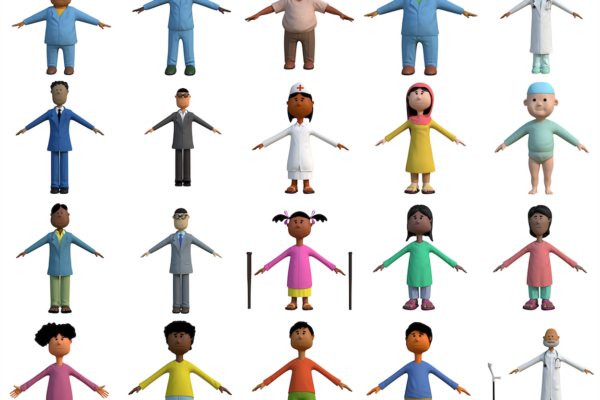How Far Will The Golden Thread Stretch?
It’s taken decades for governments and organizations to realize, and admit, that international development aid from the West to developing countries hasn’t had the huge poverty-alleviation effect it was supposed to.
When the British Prime Minster hammers on the the idea that real development happens only after addressing transparency and corruption problems in target governments – his “golden thread” theory – you know this long-delayed reality is now a fait accompli within international aid circles.
Those who follow these things know the shift is the only way the world has of reaching the United Nations’ Millennium Development Goals (MDG), eight objectives with a 2015 deadline. And they know each goal has a similar starting point: ensuring that mothers and their children are healthy.
But it’s no longer just about doing good because we should; it’s also about being smart and sustainable. Today’s aid dialogue demands “real-world goals” to move forward. As scarily amorphous as that phrase is, it requires quantifiable results for funding to continue. It is a cold reality so we’d all better know exactly what we’re trying to achieve, and then be able to show how we achieved it.
One rule is to use existing tools more efficiently rather than expecting new toys for each new project, the classic less-is-more philosophy of a leaner, meaner world. This is where mhealth (mobile health) puts up its hand and says “hello, this is what we’ve been doing for years in low-income countries.
With obvious barriers like funding, inter-operability and no existing revenue stream, mhealth is not yet the perfect MDG delivery system. But it is the biggest growth area in development right now, with hundreds of operating companies and about a dozen new ones entering the field each month.
For now almost all of them are not-for-profits, the do gooders who believe that mobile technology is the thin edge of the poverty-cycle-destruction wedge. This vanguard includes companies like iheed, which offers health-care training via cell phones; HealthPhone, which supplies basic medical treatment information on microSD cards that fit into any cell phone; and Text To Change, which does a little bit of everything in the mobile space.
The industry has such potential that heading-for-profit entities (mostly private/public partnerships) are also becoming more common, companies like WinSega, MedAfrica and RapidSMS. And this is good because a lack of profit motive has been one glaring reason why decades of aid have rarely if ever produced unique (outside the industrialized box) in-country applications. Even Nigeria’s national communications carrier MTN is positioning itself to be a health-care brand.
There are still no mhealth conferences in the developing world; they all happen in North America and Europe where sophisticated technology-driven health care is the focus. Concerns in the developing world remain mostly basic: vital-sign monitoring, post-and-ante-natal care and even getting someone to remember to take their pills. There’s not much profit potential yet, like in a $5,000 blood-sugar monitoring application for diabetics in New York too busy making $10,000 to get themselves checked out.
Mhealth will continue to produce huge improvements in health in the developing world for the same reason that hundreds of millions of poor people who can’t buy access to fresh water can buy a cell phone: because enough people on both sides of the counter have made the value-for-money equation light up.
Helping little brown babies survive past childhood has always been the prime directive of every aid organization that has ever existed. It still is the core of aid intention within the industrialized world, via the MDGs.
Because mhealth has proven its potential in a very short time, its future depends not on funding or linkages, which will emerge on their own humanitarian and economic merits, but on creating applications that resonate with Africans, Asians and anyone else who doesn’t have the luxury of regular health care. Alternative energy, like solar, is another area that will explode as vertically applied, neo-colonial attitudes about how things should work in poor countries agree to step out of the way.
It’s one thing for world leaders to blame corruption and transparency for keeping much of the developing world in poverty and quite another for those leaders to put their money, and their tools, where their mouths are.





